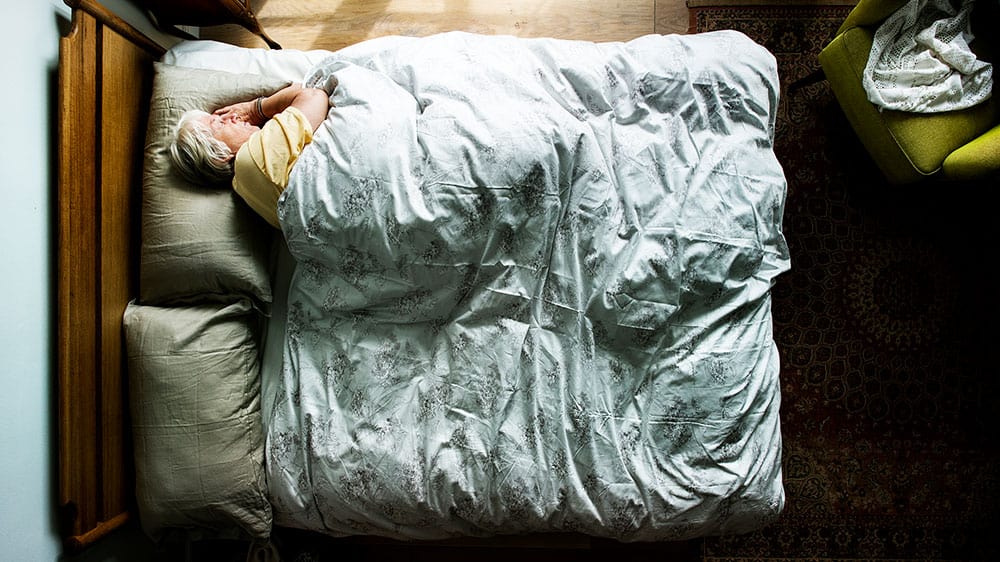We’d all prefer to sleep soundly with out the worry of getting low blood glucose ranges (BGLs) in a single day. The technical jargon for this occasion is a nocturnal hypoglycaemic episode.
The definition of a nocturnal hypoglycaemia (hypo) is when your BGLs drop to under 4mmol/L (or the minimal stage set by your healthcare group) in a single day. Of all hypoglycaemic occasions, virtually 50% happen at evening, throughout sleep.
The individuals liable to experiencing hypoglycaemia are these dwelling with diabetes who’re prescribed insulin or sulfonylurea drugs. For individuals who do expertise hypos there are some threat components which can be managed.
- Consuming too few carbohydrates typically or on the night meal
- Skipping the night meal altogether
- Taking an excessive amount of fast appearing (mealtime) insulin for the carbohydrate within the night meal, this can be on account of inaccurate carb counting or a miscalculation
- Too excessive a stage of nighttime basal (background) insulin
- Intermittent fasting (durations of not consuming) and never adequately altering medicine doses
- Ingesting alcohol
- Doing extra bodily exercise than regular – this can be deliberate train, or different actions you don’t consider together with procuring, house responsibilities, or dancing
- Exercising within the afternoon or night
- Experiencing a hypo up to now 24 hours
- Puberty, menopause, or different life stage modifications
- Elevated altitude.
Some individuals expertise no indicators or signs in any respect once they have encountered a BGL under 4mmol/L. This is called hypo-unawareness. These persons are extra prone to sleep by means of the occasion.
The chance of hypo-unawareness is elevated when you’ve got been dwelling with sort 1 diabetes for longer than 10 years or have a historical past of hypo occasions. For others there could also be a spread of proof, inside and exterior:
- Waking, particularly all of a sudden with a begin or with nervousness from an unknown trigger
- Sleep disturbance, dreaming or nightmares
- Unexplained fatigue
- Waking with sizzling, clammy pores and skin, or experiencing damp bedclothes particularly across the neck space
- Larger than normal fasting BGLs on waking; this can be a rebound impact from the in a single day hypo
- Sudden fast or sluggish respiratory fee
- A racing or very sluggish pulse fee
- Shaking or trembling
- Disorientation or confusion
- Nausea and customarily feeling unwell
- Unexplained modifications in temper similar to irritability or excessive impatience.
Most individuals will expertise a number of of those signs. In excessive instances, the implications of a hypo occasion are seizure, cardiac arrhythmias (disturbed coronary heart operate), coma and even loss of life.
Prevention is at all times higher than treatment. Consulting together with your healthcare group is the very best place to start out. Collectively you’ll be able to work on a technique for prevention of nocturnal hypoglycaemia.
Some recommendations could embrace:
- Adjusting therapy similar to the sort, timing, or dosage of insulin and/or different drugs
- Regulating the timing and carbohydrate content material of meals
- Studying or refreshing your expertise in areas similar to carbohydrate counting
- Attending teaching programs similar to OzDAFNE – Dose Adjustment For Regular Consuming
- Checking BGLs earlier than going to mattress (focus on together with your healthcare group to find out a glucose stage to be above earlier than going to sleep), in the course of the evening and very first thing within the morning to know how your BGLs fluctuate over the sleep interval
- Utilizing steady glucose monitoring (CGM) with a low glucose alarm set, with or and not using a closed loop insulin supply system
- Figuring out the indicators/signs of nocturnal hypo
- If obligatory, having a carb containing snack for earlier than bedtime
- Combining alcohol consumption (inside wholesome tips) with carbohydrate-containing meals
- Requesting your healthcare group carry out a full overview of medicines, weight loss plan, and way of life
- Having hypo therapy inside attain.
For a full description of how you can deal with an acute hypoglycaemic occasion, observe this hyperlink.
Should you consider chances are you’ll be experiencing or are liable to nocturnal hypoglycaemia, make an appointment to talk to your GP or endocrinologist who, together with your healthcare group, will guarantee you could have a plan that’s particularly tailor-made for you.
And with this peace of thoughts, an excellent evening sleep awaits.
By Constance Russell Registered Nurse, Credentialled Diabetes Educator




